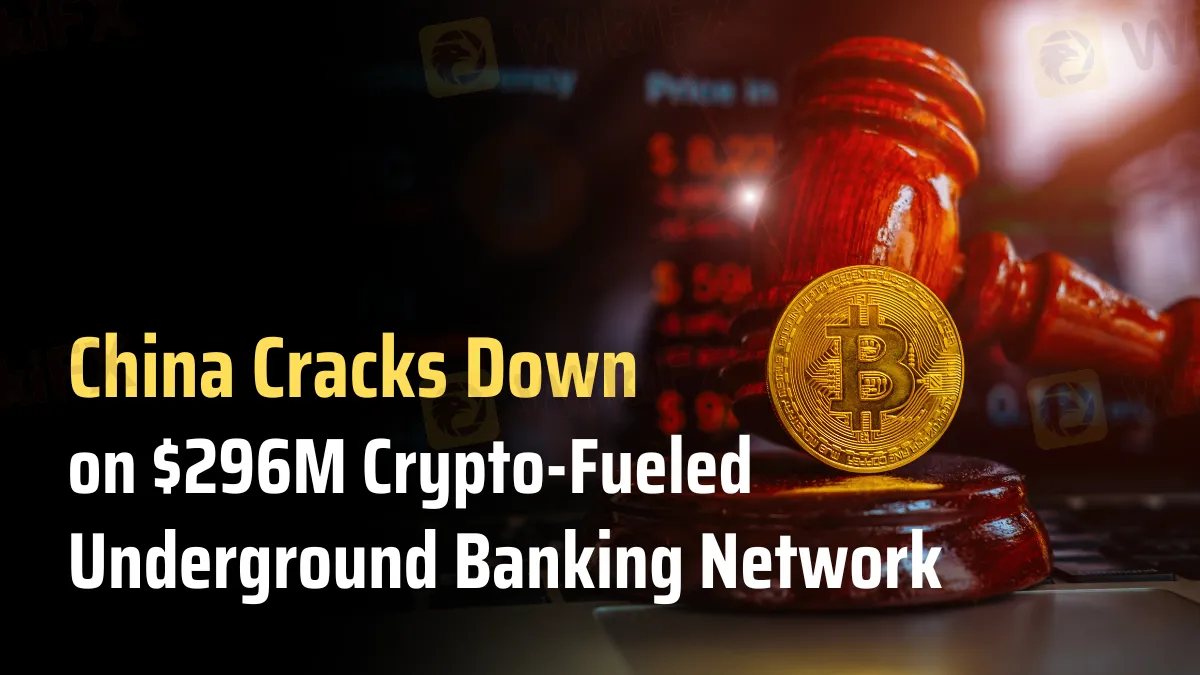简体中文
繁體中文
English
Pусский
日本語
ภาษาไทย
Tiếng Việt
Bahasa Indonesia
Español
हिन्दी
Filippiiniläinen
Français
Deutsch
Português
Türkçe
한국어
العربية
China Cracks Down on $296M Crypto-Fueled Underground Banking Network
Abstract:Chinese authorities have arrested six suspects in a $296M underground bank using cryptocurrency for illegal currency exchanges between the yuan and the won.

Chinese officials have taken down an underground banking network that used Bitcoin to enable illicit currency trades between the South Korean won and the Chinese yuan. With at least 2.14 billion yuan ($295.8 million) processed, the network emphasizes the continuous fight against the abuse of digital currency for illegal purposes.
Six people accused of planning these activities in both China and South Korea were arrested, according to a statement issued by the official media on Sunday by police in the Jilin region of Northeast China. The accused are said to have gotten over China's tight money control laws by using the anonymity and decentralization that come with cryptocurrencies.
Based on investigations, the criminal organization moved money via domestic banks by using over-the-counter cryptocurrency transactions to service several South Korean buying agents, international e-commerce platforms, and import-export companies. In doing so, they made it possible for these organizations to evade China's strict financial laws.

Over the last several years, China has been increasingly tightening its capital control laws, which has led some to look for other ways to get around these limitations, including cryptocurrencies. The administration is determined to plug these gaps, as the current crackdown highlights.
Directives to improve the oversight of foreign currency operations, especially those involving cryptocurrencies like Tether, were issued earlier this year by the State Administration of Foreign Currency and the Supreme People's Procuratorate. This action was a reaction to the increasing practice of converting yuan to foreign currencies using stablecoins.
Compounding matters, a Chainalysis research study from last year revealed that since 2018, crypto addresses associated with alleged chemical dealers in China have acquired assets valued at over $37.8 million. These funds were used to send a vital component of fentanyl to Mexico and Central America, where drug gangs transformed it into a deadly substance for sale in the United States.
The United States Office of Foreign Assets Control (OFAC) moved in October against a network of Chinese people and businesses engaged in the manufacture and distribution of fentanyl precursors. The U.S. Treasury Department said that some people in this network used Bitcoin wallets to make transactions easier.
Global authorities have a big dilemma when cryptocurrencies and illicit operations like drug trafficking and underground banking combine. Maintaining financial stability and reducing criminal businesses will depend heavily on the continuous efforts to crack down on illicit activity driven by cryptocurrencies as China strengthens its financial laws.

Disclaimer:
The views in this article only represent the author's personal views, and do not constitute investment advice on this platform. This platform does not guarantee the accuracy, completeness and timeliness of the information in the article, and will not be liable for any loss caused by the use of or reliance on the information in the article.
Read more

Coinbase Under Scrutiny Amid Wrapped Bitcoin Delisting Controversy
Coinbase has come under fire after announcing its decision to delist Wrapped Bitcoin (wBTC), a move critics claim could be driven by competitive interests. The delisting, set to take effect on 19 December, has sparked allegations of market manipulation and concerns about fairness in the cryptocurrency ecosystem.

Solana Soars to All-Time High, Hits $264 on Coinbase
Solana hits $264 on Coinbase, breaking its 3-year high with an 11% daily surge. Learn what’s driving SOL's meteoric rise and the crypto market rally.

Mastercard Partners with JPMorgan for B2B Cross-Border Payments
Mastercard and JPMorgan's Kinexys Digital Payments join forces to enhance B2B cross-border payments, promising faster settlements and greater transparency.

Bitcoin Nears $100,000: A Triumph of Optimism or a Warning Sign?
Bitcoin’s meteoric rise continues to capture global attention as its price recently surpassed the $99,000 mark, briefly approaching the $100,000 milestone. This unprecedented rally has led market sentiment to reach a state of “extreme greed,” according to the Fear and Greed Index. Analysts suggest that the market may be entering overheated territory, raising questions about sustainability amidst ongoing enthusiasm.
WikiFX Broker
Latest News
Webull Partners with Coinbase to Offer Crypto Futures
eToro Expands Nationwide Access with New York Launch
Why Is UK Inflation Rising Again Despite Recent Lows?
Hackers Charged for $11M Crypto Theft Using SIM-Swaps
Role of Central Banks in the FX Market
FCA Alerts Against Sydney FX
What Makes Cross-Border Payments Easier Than Ever?
Trader Exposes Unethical Practices by STP Trading
Interactive Brokers Launches Tax-Friendly PEA Accounts in France
Google Warns of New Deepfake Scams and Crypto Fraud
Currency Calculator


